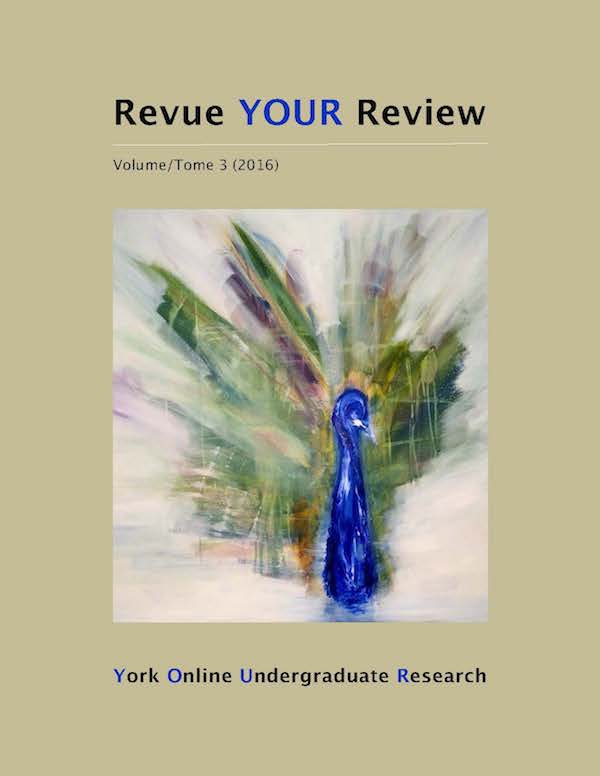The Origin of Emotion: Determining Conscious Processing of the Facial Feedback Hypothesis
Mots-clés :
psychology, facial feedback hypothesis, cognition, cognitive processing, consciousness, emotion, treatment, depressionRésumé
The facial feedback hypothesis states that sensory feedback from the contractions of facial muscles can influence mood. Researchers have demonstrated this effect, but have not been able to determine whether it occurs consciously or unconsciously (Dimberg & Söderkvist, 2011; Mori & Mori, 2010; Strack, Martin, & Stepper, 1988). The proposed study will determine if the facial feedback effect can occur through unconscious processing alone, allowing psychologists to better understand how the mind-body connection affects human emotion. The facial feedback effect will be viewed as changes in mood, which will be measured on scales using results from self-report questionnaires and emotional ratings of neutral photographs (Crawford & Henry, 2004; Libkuman, Otani, Kern, Viger, & Novak, 2007). Unconscious processing will be evaluated by using topical anesthetic to prevent a group of participants from feeling which of their facial muscles are being stimulated. Previous research has found little difference between individuals enacting the facial feedback effect using entirely conscious and semi-conscious techniques (Strack, Martin, & Stepper, 1988; Mori & Mori, 2009). Therefore, this study predicts that facial feedback effects are determined by unconscious processing and that strong facial feedback effects should be evident even when participants are not aware of the facial stimulation.Téléchargements
Comment citer
Numéro
Rubrique
Licence
Les auteurs qui contribuent à la Revue YOUR Review acceptent de publier leurs articles selon une des trois catégories de la licence 4.0 : Creative Commons Attribution 4.0 International; Creative Commons Attribution-Pas d'Utilisation Commerciale 4.0 International; ou Creative Commons Attribution-Pas de Modification 4.0 International. Tout contenu éditorial de ce site ainsi que les affiches et les résumés sont sous la licence Creative Commons Attribution-Pas de Modification 4.0 International. Pour plus d’informations, veuillez voir :
https://creativecommons.org/licenses/
Dans tous les cas, les auteurs conservent leurs droits d’auteurs et concèdent à la Revue YOUR Review le droit de première publication. Les auteurs peuvent, par la suite, conclure d’autres accords de distribution non exclusifs de la version publiée dans ce périodique (par exemple, l’afficher à un dépôt institutionnel ou le publier dans un livre ou dans un autre périodique) à condition que la reconnaissance fasse mention de la publication originale dans la Revue YOUR Review.


